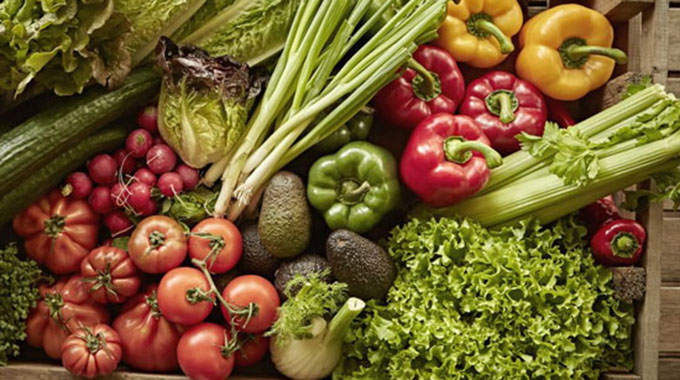
Jeffrey Gogo Climate Story
Wider consulation and engagement has now become essential to resolve issues related to multi-million-dollar farmers’ markets – hamstrung by the extended coronavirus lockdown and the vagaries of climate change – so that sustainable food systems are established.
The forced closure of fresh produce markets throughout Zimbabwe has left thousands of smallholder farmers in a huge financial hole, adding to existing problems caused by climate change, which has cut farm output due to a shortage or rain or too much of it.
Now agriculture experts want Government authorities to step up and ensure the full re-opening of these key markets to save livelihoods, both that of the farmers who sell their products there and of the people that depend on the market places to buy food.
This is not an act of rebellion against coronavirus containment measures, experts stressed, rather a call to cross-sectoral dialogue based on the importance of fresh produce markets in socio-economic development.
The call follows the partial re-opening of the Mbare, Hatcliffe and Lusaka farmers’ markets by the Harare City Council two weeks ago, as lockdown restrictions started to ease. The market places open for just 7 hours a day, from 4am to 11.30am, “after which period the market area will be cleaned,” said the municipality, in a statement.
“While we applaud efforts being made to re-open markets in a manner that protects citizens from contracting coronavirus, farmers and citizens still remain concerned about the trading time and the closure of other major markets throughout the country,” said Getrude Pswarayi-Jabson, a Harare-based agriculture conservation expert.
Pswarayi-Jabson said the issue of granting farmers access to fresh produce markets was “overlooked in the initial lockdown period.”
“Farmers’ markets such as these are a major revenue source for farmers and the main source of food for the majority of Zimbabweans,” she opined.
In a statement Harare municipality, said “Farmers bringing produce for the following day will then be allowed to offload their produce and make their entry payments but will not be allowed to trade until the following day.”
Coronavirus lockdown measures have locked out farmers out of their source of income. Making money on lockdown has been an impossible task for smallholder farmers, who are still smarting from a succession of climate change-triggered drought and flooding events.
It has become a double fight for survival, not only against the deadly new coronavirus but also against severe financial loss. In Chimanimani, Kevin Chimombe is attempting to minimise the damage by cutting post-harvest losses.
The 44-year old horticulture farmer is working with farmer advocacy group Towards Sustainable Use of Resources Organisation (Tsuro) Trust to improve storage of the beans, tomatoes and vegetables that he grows for sale to surrounding markets.
“I mainly focus on growing beans and this season I grew 0,3 hectares of beans. I grew three varieties of beans,” said Chimombe, in an interview with Pelum Zimbabwe, an organisation that works with small farmers to promote sustainable agriculture.
“I grow beans because they have a more ready market. They are easy to preserve over a long period when the market is not profitable. I keep them and sell them when they can fetch a better price,” he added.
Chimombe appeared trapped in traditional agriculture practices, barely producing enough to feed his family. Having mastered the dynamics of supply and demand, today the Chimanimani farmer focusses on income generation.
He takes advantage of periods where demand is high and supply is low, to sell his sun-dried vegetables and other produce profitably. Dried stuff lasts longer compared to fresh products, a pitfall for many a farmer.
God is faithful.
